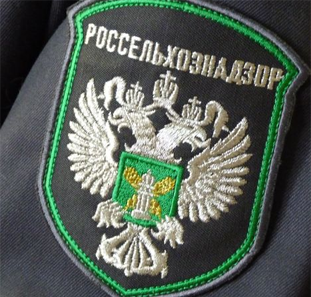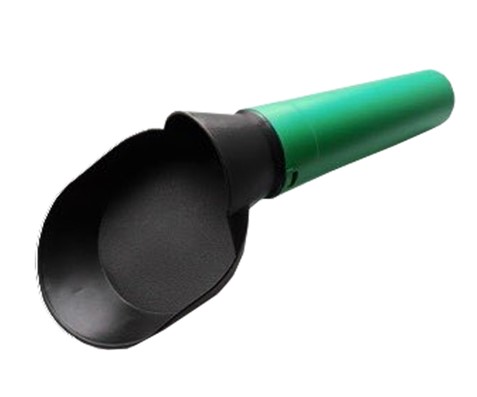VGNKI has developed methods for detecting veterinary drugs in milk and meat

The All-Russian State Center for the Quality and Standardization of Medicines for Animals and Feed of the ROSSELKHOZNADZOR (FGBU VGNKI) has developed new methods for the determination of antibiotics and antiparasitic drugs in animal products.
According to Maria Gergel, HEAD of the VGNKI testing center, the methods are designed to detect such drugs as nitrogen-containing compounds, avilamycin, azithromycin, kitasamycin, pefloxacin, rifaximin, rifampicin, tildipyrosine, thiamphenicol , dapsone and zoalene. All these drugs can become food contaminants, significantly increasing the risk of disruption of the normal intestinal microflora, allergic reactions, development of antibiotic resistance in normal and pathogenic bacteria.
The methods proposed by scientists will be applied in the study of EXPORT products: poultry, pork, beef, chicken eggs, MILK and some other food products. When compiling a list of veterinary drugs, the content of which is unacceptable in animal products, VGNKI employees carefully analyzed the laws of all importing countries. Maria Gergel noted that certain drugs are rationed in several states at once, and some in a single one - for example, zoalene in CHINA.
The methods are included in the scope of accreditation of the VGNKI testing center, where there are now more than 340 documents regulating the rules and methods of research. An order from the Rosselkhoznadzor to confirm its competence in several additional areas is expected in September.
Read together with it:
- Парагвай: Экспорт субпродуктов является растущей отраслью и уже достиг 95,4 млн долларов СШАЭкспорт говяжьих субпродуктов в этом году значительно вырос. К концу августа выручка составила 95,4 млн долларов США по сравнению с 54,6 млн долларов США на тот же конец прошлого года. По данным SENACSA, в конце августа этого года было экспортировано 51 миллион килограммов мяса по сравнению с 33,7 миллиона килограммов на конец того же месяца прошлого года. Экспорт субпродуктов увеличился на 51,3%....
- Новые горизонты сотрудничества: Россия и Аргентина обсуждают совместный доступ на рынки продукции животного происхожденияОдной из ключевых тем конференции стал контроль за производством ветеринарных препаратов в Аргентине. Аргентинская сторона представила свою систему контроля, включающую Управление ветеринарных продуктов и Управление лабораторий животных. Эти организации обеспечивают высокие стандарты безопасности, так как каждая производственная единица подвергается проверкам каждые 3-5 лет и зарегистрирована в ин...
- С января по июль экспорт свинины из ЕС вырос на 1,6%На втором месте оказались Нидерланды с объёмом экспорта в 392 000 тонн. Дания экспортировала свинину в третьи страны с объёмом в 308 000 тонн, что примерно на 13% меньше, чем в предыдущем году. Германия экспортировала 180 000 тонн, что на 18% меньше, чем годом ранее. Это было обусловлено, главным образом, дополнительными ограничениями на экспорт, вызванными вспышкой ящура в начале года. Помимо зап...
- Московская область планирует нарастить мясное производство на 25% к 2030 годуВ Московской области более 100 предприятий уже выпускают около 305,000 тонн мяса, из которых значительная доля поступает от 19 ведущих производителей свинины и мяса птицы. Также в регионе реализуются два новых инвестиционных проекта: в Можайске строится утиная ферма на 125,000 птиц, а в Ступино — овцеводческое хозяйство на 11......
- В Кремле пообещали ответ на санкции сообразно интересам РоссииДмитрий Песков В Кремле начали анализировать введенные санкции для разработки ответных мер, заявил пресс-секретарь президента России Дмитрий Песков, передает корреспондент РБК. «В настоящий момент анализируются те санкции, которые определены. Будем делать то, что наилучшим образом соответствует нашим интересам», — сообщил Песков, отвечая на вопрос об ответных мерах России. 19-й пакет санкции Еврос...
- Захарова пообещала «жесткие шаги» в ответ на 19-й пакет санкций ЕСМария Захарова Россия жестко ответит на очередной пакет санкций Евросоюза, заявила в телеграм-канале официальный представитель МИД России Мария Захарова. Ранее ЕС принял 19-й пакет антироссийских санкций, включающий запрет на импорт российского СПГ, новые ограничения против нефтяных компаний, судов, банков и экспорта ряда товаров, а также ограничения на передвижение российских дипломатов. «Россия ...
- С начала года Московская область увеличила экспорт свинины на 35% в стоимостном выраженииМосковская область продолжает укреплять позиции одного из ведущих экспортеров продукции агропромышленного комплекса в России. По итогам 9 месяцев с начала года регион нарастил экспорт свинины на 35% по стоимости. В натуральном выражении объем поставок составил 85 тысяч тонн, что на 17% больше, чем за аналогичный период прошлого года. В Министерстве сельского хозяйства и продовольствия Московской о...




























































